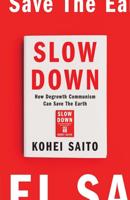Publisher's Synopsis
This volume is a compilation of papers presented at the third biannual meeting of the International Forum on Persons held at Oriel College, Oxford in August of 1995. Propelling the origination of the organization was both the insight that persons are subject not only to political, economic, and technological dehumanization but also to deep misunderstanding and the conviction that focusing the bright light of dialectical critique on the topic could help overcome the ignorance among scholars. Purely personal relations where no impersonal factors need to be taken into account are rare, if indeed they exist at all. Most of our relations with people, for instance parents and children, involve types of expectations as to behaviour and obligations, and these, as general and repeatable features, are not uniquely personal. The notion of a person itself, according to anthropologists, grows up in a social context. To be a person is not just to be an individual human being, but to have a name which gives one a status. "Status" need not be a snob word - it refers simply to having a social position. It can include an occupational role.;This is still sometimes preserved in Wales, where you can have John Jones the Post and John Jones the Bread. I had thought this was because more or less everyone there was called Jones, but Philip Hunt, who lives in Wales, tells me it is important to mark a person's occupation. There are two extreme views of what it is to be a person. One is the purely sociological defining of a person by his status and function. The other is the existentialist where a person exists in making unique decisions for which no further understanding of the super-ego and morality, social policy among a positivist view of society, and the social possibilities provided by the concept of covenant. To advance the conversation on these fronts a variety of philosophical approaches are required, from theology, to metaphysics, to social philosophy, to philosophy of mind. Finally, the last group of essays discuss various world views implied by the personalist vision. These range from the thought of Gabriel Marcel, to Jose Vasconcelos, to Plato, to Karol Wojtyla, to Rosenzweig, to John Henry Newman, to African thought, and to American Personalism.;Though these views represent different societies, French, German, Poland, England, Africa, and the United States, they converge at the point of believing that the person is the central category for understanding the world. Do these essays dispel all the vagueness and misunderstanding surrounding the problem of person in our age? Do they settle the problems of methodology and authority? No, that would be claim too much; the problems are so difficult that they cannot be resolved by one conference of group of them. However, we believe that only through a philosophically diverse conversation such as the one at Oriel College, Oxford in August, 1995 can persons make headway and enhance the quality of their lives.








